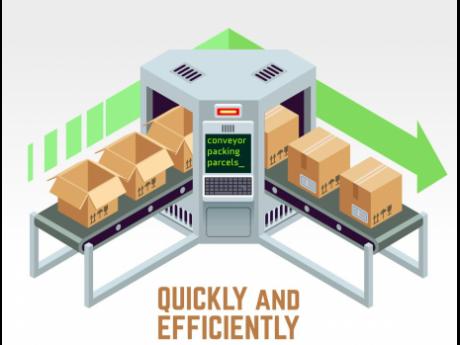Technology in Focus | Increasing business efficiency with automation
Many organisations are today bogged down with simple yet mundane and repetitive tasks that can prove time-consuming and negatively affect productivity.
Research analyst for innovation at MC Systems, Kathryn Chin See, says many of these tasks can be automated through digital technology using a computer software known as robotic process automation (RPA).
Chin See raised this topic while addressing the recent Jamaica Computer Society’s (JCS) BizTech Conference at the Jamaica Conference Centre in downtown Kingston.
“Robotic process automation uses trainable computer software to execute repetitive tasks, which would normally be handled manually. RPA is perfect to handle low-level, repetitive and rule-based activities,” she explained.
Chin See suggested that if organisations were to use this technology, they could “free up” their workforce to concentrate on more high-level, value-generating tasks that require soft skills, intuition, cognitive approach and the human touch.
She said the technology can be used to key data from invoices, vet résumés for recruitment, as well as for reporting and other tasks.
Outlining the advantages of the technology, Chin See related that it was time-efficient, error-free and non-invasive.
“Robotic process automation is reliable; it is available 24/7 without disruption. It can multitask and complete tasks in a faster time compared to manual operation, which increases productivity. This is possible because RPA uses digital data and follows specific, preconfigured processes, which makes it extremely accurate,” she emphasised.
Chin See said that since the technology increases productivity with speed and accuracy, this would result in improved customer experience and satisfaction.
Turning to the reporting capability of the technology, she said that RPA is equipped to extract the relevant data, and, as such, can automatically collate information for department and unit reports.
The MC Systems research analyst in innovation posits that the implementation of this technology enables organisations to better diversify human skills, and allows for improvements in process cycle times.
“Team morale will be lifted as members will no longer be frustrated with boring data-entry tasks and will be engaged in activities that are exciting and fulfilling. In the long term, we expect to reduce costs. We expect high velocity in skills development within teams and we expect that team performance levels will increase,” she said.
However, Chin See cautioned, to get maximum benefits from this technology, organisations will need to do proper documentation of their processes and digitise data.
“Prior to automation, take some time to assess and document the business processes. Fix the process first. Ensure that the process makes sense. Data must be digital, as RPA can only manipulate digital data. It can either be scanned documents, a spreadsheet or text files,” she said.
Chin See also said that all process stakeholders should be included in the conversation prior to the transformation of any process. Team members who interface with the process should also be engaged in the planning phase. This, she stated, is critical, as challenges could arise if all team members are not on board.
She noted that digital transformation can be scary and intimidating as teams may see it as a move to make their roles redundant.
“It is important that you manage the resistance to change by communicating the benefits of digital transformation and what that will mean, in the long term, for the organisation and for team development,” she said.
Send feedback on this article to solutions@mcsystems.com.



